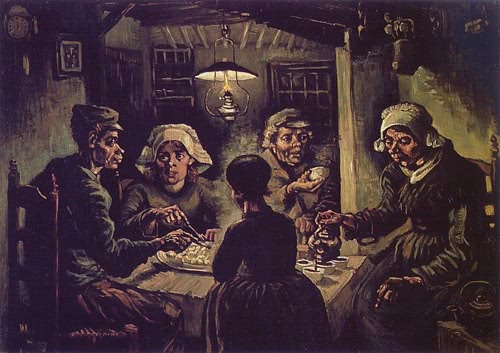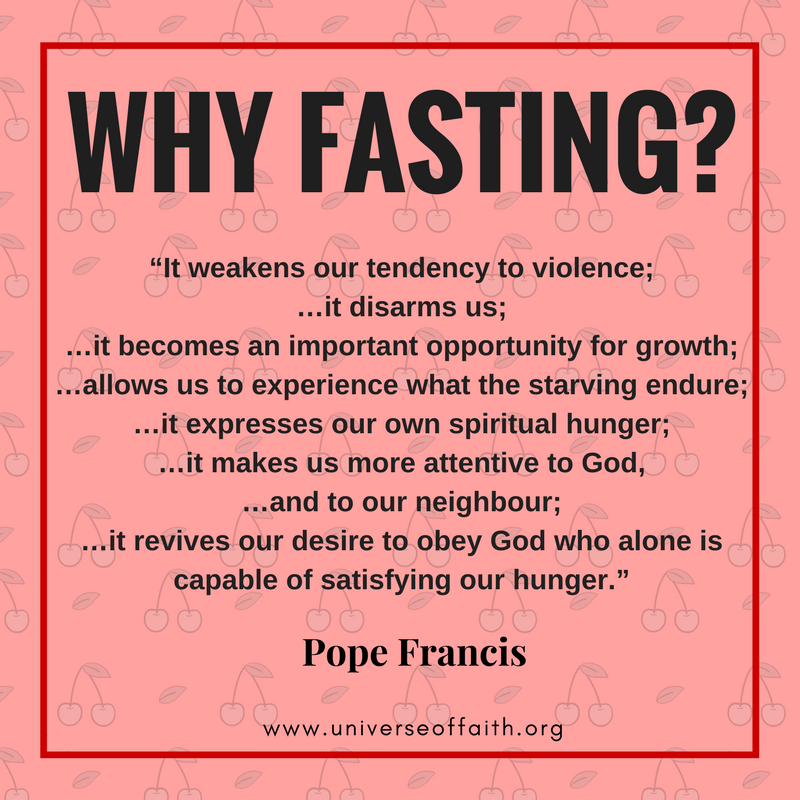Why Is Fasting Important During Lent?

Photo: amaltesemouthful.com
Fr Mark Sultana explains why fasting is important during lent, that is – why Catholics consume less food on Ash Wednesday and Good Friday.
Fasting has to do with trusting, healing an having an open heart
Fasting and abstinence have to do with a healing of relationships, with God, with others, with creation, with self. We each need this healing badly. For we all have a tendency to gobble: we want to eat, not only with our mouth, but also with our eyes, touch, smell and ears. Our way of eating may come to mean that we want to own and dominate more and more of nature. We want to compensate for the emptiness within us through food. Gluttony is akin to consumption. As consumers, we very easily become gluttons. The way we eat shows to what extent we can distance ourselves from our fixation with self and our solitary pleasures so that we can be freer to receive and give love. Thus, fasting and abstinence are an invitation to trust God who provides for us. They are an opening of the heart to gratitude. They are an opening of the heart to God.
Through fasting we learn that we are not self-sufficient
Precisely because we have a tendency to gobble, we need to act against (agere contra) ourselves. We do this in order to repent for our sins which are all rooted in narcissistic pride so evident in so many of our consumptive patterns. We need forgiveness, and fasting and abstinence help us to recognise and present this need. In addition, through fasting and abstinence, we slowly learn that we are not self-sufficient. We really, profoundly desire God, a desire which is often buried under layers of alienation and consumption. This is why it is important that we fast in prayer: prayer, and fasting and abstinence are an expectant emptiness before God. On the one hand, we desire God; we hunger and we thirst for God. On the other hand, we feel the struggle involved in fasting because we tend to want to consume more and more. Fasting and abstinence lead to purification of this desire, to repentance and to compunction; they lead us to continuously want to change ourselves. Fasting and abstinence also bid us to be vigilant towards our thoughts, our words and our heart. They are of benefit when they are combined with love for our neighbour. They are of benefit when we seek not so much to criticise others but instead to work on ourselves. Then we are marked by love for others and love for our soul: the fulfillment of the great commandment, that of love of God and one’s neighbor.

Fasting before God is different than fasting by ourselves
We recognise that we cannot do all this on our own. Indeed, in this struggle (aptly called agonia), we are not alone. We fast before God. Fasting or abstinence by ourselves, are dangerous: they tend to become an expression of mere narcissism. True fasting is a road to humility. By making our tables poorer, we learn to live in gratitude according to the logic of gift and love. By submitting ourselves, before God, to some form of deprivation, and not just depriving ourselves of what is excessive, we learn to look beyond our ‘ego’. We learn to discover that God is indeed close to us. We learn to recognise God in the face of our brothers and sisters. Fasting, far from being a heavy weight, opens us ever more to God and to the needs of others. Abstinence means that we deprive ourselves from the rich food (both in the economic and the ecological sense) which is meat. This is done in order to curb the concupiscence of the flesh and to open the heart and mind to God.

Send us your question at [email protected]
Read more:
– Feeling Insecure – Love As The Greatest Security
– Prayerful Holy Week Bible Verses














